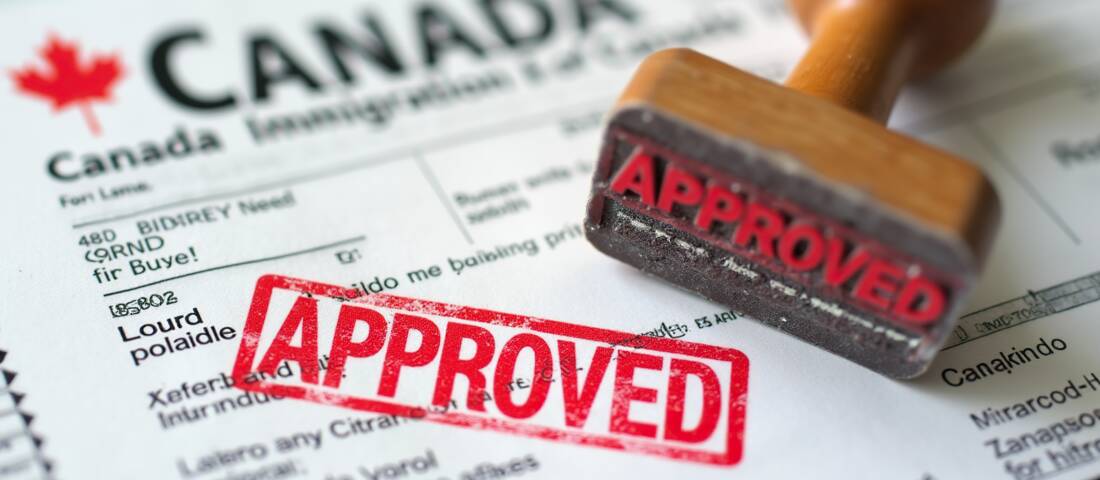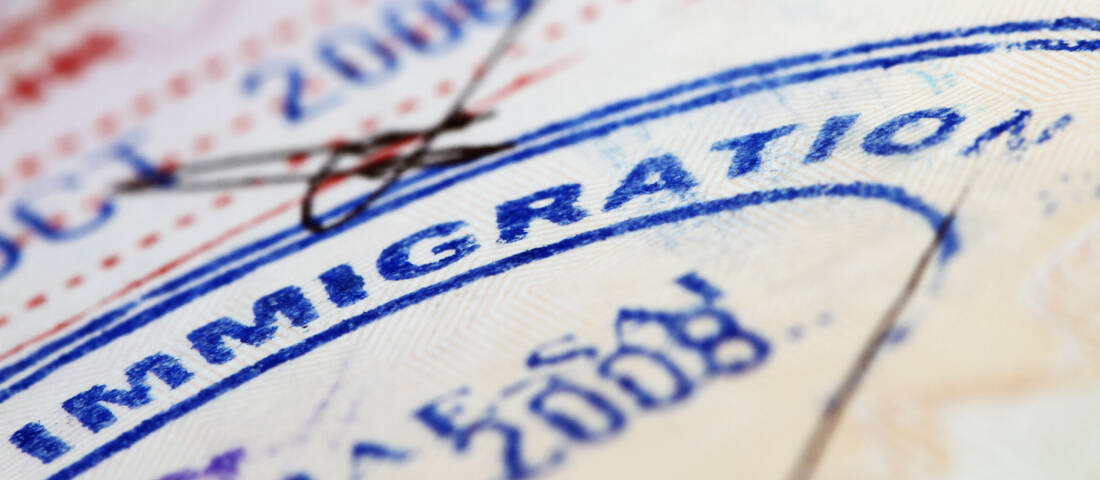For many, Canadian citizenship means stability, safety and the chance to fully belong in the place they now call home. For others, it’s about building a legacy for their children, gaining the freedom to travel without restrictions or securing a future that felt uncertain elsewhere.
It’s no surprise that one of the most common questions we hear is “Am I eligible for Canadian citizenship?”
Whether you’re a permanent resident who’s been living in Canada for years, a refugee rebuilding your life, a student or worker wondering what’s next or someone with Canadian roots born abroad—your path matters.
This guide is here to help you understand the most important rules, exceptions and real-life scenarios that affect your eligibility for Canadian citizenship. We’ll break down the requirements, explain the most common pathways, and share practical tips to help you move forward.
What Is Canadian Citizenship and How Is It Different from Permanent Residence?
Canadian citizenship is the highest legal status you can have in Canada. It means you are fully recognized as a Canadian, with all the rights and responsibilities that come with it, including voting in elections, applying for a Canadian passport and never needing to renew your immigration status again.
In contrast, permanent residents (PRs) are non-citizens who have the right to live and work in Canada indefinitely, but they don’t have the same protections or privileges. PRs must maintain their status, renew their PR cards and can be removed from Canada under certain circumstances (like serious criminality or not meeting residency obligations).
The Standard Eligibility Criteria for Canadian Citizenship
To become a Canadian citizen, most applicants need to meet several key requirements. These are designed to show a genuine connection to Canada and a readiness to take on the rights and responsibilities of citizenship.
Here’s what you typically need:
- Permanent resident status: You must already be a permanent resident of Canada and not be under review for fraud, removal or immigration violations.
- Physical presence in Canada: You must have been physically in Canada for at least 1,095 days (three years) out of the last five years before applying.
- Income tax filing: In most cases, you must have filed taxes in Canada for at least three years within that same five-year window.
- Language skills: If you’re between 18 and 54 years old, you’ll need to demonstrate adequate knowledge of English or French.
- Knowledge of Canada: Most applicants must pass a citizenship test on Canadian history, laws, values, institutions and symbols.
- Clear criminal record: Certain criminal offences may make you ineligible, either temporarily or permanently.
Citizenship isn’t automatic even if you’ve lived here for many years. The process is designed to be fair, but it does require that you meet these core standards.
Common Scenarios: Canadian Citizenship Eligibility
Many people wonder if their unique situation qualifies them for Canadian citizenship. Here are some of the most common scenarios we encounter and how Canadian law applies to each.
1. Permanent Residents Living in Canada
If you’re a permanent resident who has lived in Canada for at least 1,095 days over the past five years, you’re likely eligible to apply—provided you’ve met your tax obligations and language/test requirements. This is the most straightforward path to citizenship.
2. Children Born Abroad to Canadian Parents
If at least one of your legal or biological parents was a Canadian citizen when you were born, you may already be a Canadian citizen, even if you’ve never lived in Canada. This is known as citizenship by descent. However, the first-generation limit means that this right doesn’t extend to children of Canadians who were also born abroad, except under certain exceptions.
3. Adopted Children
Internationally adopted children may be eligible for citizenship through a separate process, either as part of the immigration route or directly through a grant of citizenship, depending on the circumstances and timing of the adoption.
4. Refugees and Protected Persons
If you were granted permanent residence in Canada after being recognized as a refugee or protected person, you’re eligible to apply for citizenship once you meet the physical presence and other standard criteria.
5. People Without Status in Other Countries
If you don’t have legal status in your current country—such as undocumented migrants in the U.S.—you must first become a permanent resident of Canada before you can apply for citizenship. Depending on your background, you might explore refugee protection, humanitarian and compassionate grounds or family sponsorship as possible pathways to PR.
6. Former Permanent Residents Who Left Canada
If you were a PR but left Canada and let your status lapse, you are not eligible for citizenship. You’d need to regain PR status first.
7. Spouses of Canadian Citizens
Being married to a Canadian does not automatically make you eligible for citizenship. You must meet all standard requirements on your own, including physical presence and PR status.
The Most Common Pathways to Canadian Citizenship
To become a Canadian citizen, you typically need to go through at least two stages: first, becoming a permanent resident, then meeting the citizenship eligibility criteria. Here are the most common routes that lead people to Canadian citizenship:
1. Express Entry (Economic Class Immigration)
Skilled workers often become permanent residents through Express Entry programs like the Federal Skilled Worker Program, Canadian Experience Class or Federal Skilled Trades Program. These programs are point-based and prioritize language ability, work experience, education and age. Many Express Entry applicants eventually go on to apply for citizenship.
2. Family Sponsorship
Canadian citizens and permanent residents can sponsor spouses, common-law partners, dependent children and (in some cases) parents or grandparents. Once sponsored individuals gain permanent residence, they can begin counting days toward citizenship.
3. Refugee or Protected Person Pathway
Individuals granted refugee protection or permanent residence on humanitarian and compassionate grounds may be eligible for citizenship once they meet the standard criteria. Canada is one of the few countries that provides a clear pathway from protection to full citizenship.
4. Provincial Nominee Programs (PNP)
Provinces and territories can nominate individuals with skills and experience that meet local labour market needs. Once approved and granted permanent residence, PNP candidates can work toward citizenship like any other PR.
5. Adoption or Citizenship by Descent
Some children may acquire Canadian citizenship automatically if adopted by Canadian parents or born abroad to at least one Canadian parent. These cases often bypass the PR process altogether.
6. Long-Term Residency or Humanitarian Applications
Some individuals apply for permanent residence based on long-standing ties to Canada or exceptional circumstances—particularly those without status or facing hardship in their country of origin. If successful, they may eventually qualify for citizenship through this less conventional route.
What Could Prevent You From Becoming a Canadian Citizen?
While many people meet the eligibility criteria for Canadian citizenship, certain legal or procedural issues can delay or prevent approval. These are the most common reasons your application might be refused or deemed ineligible:
- Not meeting the physical presence requirement: You must have been in Canada as a permanent resident for at least 1,095 days in the last five years before applying. Time spent outside Canada, even temporarily, may reduce your total.
- Missing or incomplete taxes: You need to have filed your income taxes for at least three out of the last five years. If your tax record is missing or unclear, it can delay or derail your application.
- Language skills not up to standard: If you’re between 18 and 54 years old, you must possess sufficient knowledge of French or English. Poor test results or missing documentation can result in a refusal.
- Criminal history or ongoing legal issues: If you’re under a removal order, in jail, on parole or probation, or have been convicted of a serious criminal offence in or outside Canada, you may be barred from applying until your sentence is complete or the restriction period passes.
- Misrepresentation or fraud: Providing false information or leaving out critical facts on your immigration or citizenship applications can lead to denial, revocation or even legal consequences.
- Losing your permanent resident status: If you fail to meet your residency obligations as a PR or are found inadmissible to Canada, you may lose your status, which makes you ineligible to apply for citizenship.
How and When to Apply for Citizenship
Once you’ve confirmed that you are eligible for Canadian citizenship, applying is a structured process where timing and accuracy are crucial.
You should apply only after you’ve met all requirements, especially the 1,095 days of physical presence in Canada within the last five years. Even if you’re close, applying too early can lead to a refusal. Use the official online calculator from IRCC to confirm your days.
Here’s a step-by-step look at what the process typically involves:
- Gather your documents: These include proof of permanent resident status, travel records, language test results (if applicable), tax documents and identification.
- Complete the application: You can apply online or on paper. Ensure you fill out the correct forms and double-check that every field is complete and accurate.
- Pay the application fee: As of now, total application fees are $649.75 CAD for adults and $100 for minors (under 18).
- Submit your application to IRCC: Once submitted, you’ll receive an acknowledgement of receipt (AOR), and your application will be reviewed.
- Take the citizenship test and interview (if required): Applicants between 18 and 54 years old must take a citizenship test and may be asked to attend an interview. The test covers Canadian history, values, institutions and symbols.
- Wait for the decision: If approved, you’ll receive an invitation to attend a citizenship ceremony, where you’ll take the Oath of Citizenship and officially become a Canadian citizen.
Processing times can vary, so it’s important to apply as early as you’re eligible, but not before. Double-check your records, especially travel history and tax filings, before you submit.
Canadian Citizenship Is Possible, Even If You’re Not Eligible Yet
While the process of becoming a Canadian citizen can feel overwhelming, the good news is that there’s often a path forward, even if you’re not eligible for Canadian citizenship just yet. Sometimes, it’s just a matter of timing, gathering the right documentation, or understanding how the rules apply to your unique situation.
At Ackah Law, we’ve helped people from all walks of life navigate the complex journey to citizenship—from long-time permanent residents and refugees to international students, family sponsors, and individuals with unusual or difficult immigration histories. Whether you’re ready to apply or unsure where to begin, we’re here to help you build a clear, confident strategy.
Book a call with a client engagement coordinator to learn more about how you can work with Ackah Law and how you can get personalized advice and explore your best next step toward Canadian citizenship.








